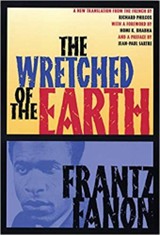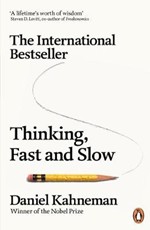Ideas from IDIA: Suggested Readings
What books would our staff, post-docs, and PhD students recommend for our current and prospective students to read about politics and international relations?
Stanley Hoffmann, ‘Heroic Leadership: The Case of Modern France’ in Lewis J. Edinger (ed.) Political Leadership in Industrialized Societies: Studies in Comparative Analysis. (New York: John Wiley & Sons, 1967).
Stanley Hoffmann has been an inspiration and a role model for me from the very beginning of my studies in international relations, and this is one of his most cited pieces. Hoffmann’s life experience taught him that boundaries and borders are arbitrary and permeable, and he brought this to his scholarship, bringing whatever academic tools he could to the study of the realities and messes of world politics. He made the marriage of theory and empirical research seem particularly effortless. He also had a soft spot for Charles de Gaulle, and this piece on ‘heroic leadership’ is one I return to again and again when thinking and writing about diplomacy and leadership today. Oh, and he was nice and generous to other scholars and his students. That matters.
Frantz Fanon, The Wretched of the Earth (New York: Grove Press, 1961).
It’s one of the most important books of the 20th century and is vital reading today. It explains how colonised people fight for freedom, and the political, social, and psychological impact of colonisation. If you want to understand issues like Black Lives Matter and contemporary racism, then this is essential reading into structures of oppression and how they can be dismantled.

Eric Hobsbawm, The Age of Extremes: The Short Twentieth Century, 1914-1991 (London: Abacus, 1994).
This is one of those required readings from a university course that stays with you for the rest of your life. Hobsbawm’s breathtaking (if not entirely perfect) review of the world from the start of the First World War to the end of the Cold War puts our current world into perspective by showing how much we have been shaped by that short, bloody but transformative century. It is the final book in a widely acclaimed series on world history since 1789.
Arlene Tickner and David Blaney, Claiming the International (London: Routledge, 2013) and Thinking International Relations Differently (London: Routledge, 2012).
I would recommend these as two of the most inspiring collections exemplifying the movement to diversify, and pluralise, the otherwise conventional Western-dominated disciplines of International Relations and Diplomacy. The volumes bring together alternative voices and, ways of writing and theorising, that open up the world and bring the world in, through uncovering alternative histories. In so doing, authors from across the world explore alternative ways of thinking about “the international”, “security”, “sovereignty”, and “politics”. Contributions range from indigenous women’s pluralising of sovereignty to Arab scholars’ take on globalisation.
Daniel Kahneman, Thinking Fast and Slow (London: Penguin, 2011).
This book on behavioural psychology and decision-making is by the Nobel Prize winner, Daniel Kahneman. It is an accessible text that summarises and further develops a series of important articles that Kahneman wrote together with Tversky in the 1970s and 1980s. The book analyses how humans make decisions – and incidentally how people make wrong judgments due to biases and heuristics. It argues that we have two systems of thinking – System 1 (thinking fast) and System 2 (thinking slow) – and that we use both systems to understand the world, and to make our choices.

Georg Sørensen, Rethinking the New World Order (London: Macmillan, 2016).
Few books have managed to provide a clear understanding of the concept of the world order. This is one of the recent attempts to theorise the world order through a wide range of Western and non-Western perspectives. It is an important guide to understanding changes in the world order in the context of the rise of China.
James Martin, The Meaning of the 21st Century (Eden Project Books, 2006).
Not only must we avoid the mistakes of the 20th Century, but – argues Martin – we must reckon with a series of challenges that will come to a head by the middle of the 21st Century, if we are to make it through that ‘canyon’. Some have already come, like challenge 10: a planet-wide pandemic (p230). That means we must not only address these issues now, but we must be training the next generation of leaders in various sectors who will have to navigate us through the mid-century perfect storm. Depending on how we do, Martin posits four ‘world scenarios’ for 2050 (chapter 18).
Henry Kissinger, Diplomacy (Simon and Schuster, 1994)
When you are born and raised during the Soviet Union (and from 1991 the independent Republic of Moldova), you are taught to understand world affairs in the key of Realpolitik, and the 1994 book Diplomacy, written by Henry Kissinger, a former US National Security Advisor and Secretary of State, is your academic initiation. It walks you through a history of IR and the art of diplomacy of the 20th century, showing the balance of power in Europe. Although today I no longer examine global affairs through the prism of the school of realism in international affairs, this book remains the departure point for Diplomatic Studies.
Alicja Prochniak
Jan Melissen, The New Public Diplomacy, Soft Power in International Relations (Basingstoke: Palgrave Macmillan, 2005).
The New Public Diplomacy can be mentioned amongst one of the most frequently cited titles on public diplomacy. The book was written and edited by well-known and widely respected academics in this subject area. This book presents an extensive debate about public diplomacy and evaluates its role in foreign policy.
Sean Calvin
Robert Jervis, Why Intelligence Fails: Lessons from the Iranian Revolution and the Iraq War (Ithaca: Cornell University Press, 2011).
This book can be regarded as a sort of Haynes manual for understanding intelligence failures. It provides a well-written political and psychological case study analysis of two major intelligence failures. The failure to recognise the fragility of the Shah in Iran and the process failures leading to the assumption that Iraq had WMDs. This book offers a good introduction to understanding the processes, pressures, and pitfalls in formulating intelligence assessments. Despite being written in 2011, it is still relevant today. The section on Iraq can be used to cross-reference the redacted SIS intelligence assessment and the CIA National Intelligence estimate of Saddam Hussein, both of which are available online.
Katy Hayward and Catherine O’Donnell (eds., Political Discourse and Conflict Resolution: Debating peace in Northern Ireland (Abingdon: Routledge, 2012).
This book explores the role of political discourse in conflict transformation, drawing specialist contributions from established scholars in the field of Northern Irish politics. It provides a unique and detailed insight into how political discourse shapes and influences the political terrain in Northern Ireland. A must-read for those interested in gaining an understanding of the importance of discourse in a region emerging from conflict, and how localised diplomacy plays a crucial role in securing an end to violence.
Yuval Harari, 21 Lessons for the 21st Century (London: Jonathan Cape, 2018).
This book can be seen as a summary of Harari’s two previous books, one based on the distant past experience of humanity named Sapiens: A Brief History of Humankind (2011) and the other the author’s vision on the potential distant future, Homo Deus: A Brief History of Tomorrow (2016). In this book, Harari looks at the current technological, political, social, and existential issues that the human race has to deal with to face its potential future threats. This piece of work will be useful for those interested in futuristic ideas in IR Theories and for those who aim to form their own holistic views on international relations through the lens of the past, present, and future of humankind.

Loughborough University London
Blogging everything that’s happening at Loughborough University London